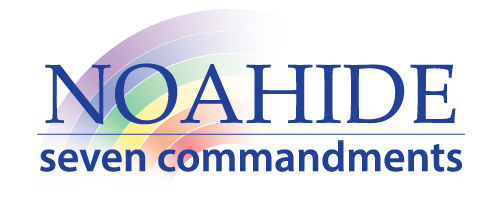Rabbi Dr Zvi Aviner
Jan 2022
Ó copyrights 2022
IDOLATRY -1/ Idolatry Stated In
Moses’ Ten Commandments
Last class we discussed Noah’s Seven Commandments as a group.
Today we start examining them one by one, according to their list
We begin with the first of Noah’s Seven Commandment – IDOLATRY.
The question is: Where is it stated in the Torah?
In fact, all the patriarchs knew about it, fought against it,
and yet it does not appear as an explicit Commandment
in the Book of Genesis
It is stated first time in Moses’ Ten Commandments,
where G-d says (Exodus 20: 1-5):
The First of the Ten Commandments of Sinai:
(1) I Am
(2) The Lord (Y*H*V*H) your G-d (EeLoHiM)
(3) Who took you out of Egypt land…
…………………Man ……………………
The Second of the Ten Commandments
(1) Thou shall have no other gods
(2) besides me (over my face)
(3) Thou shall not make for yourself any carved idol
or any image of anything that is in the Heavens above
or that is in the Earth beneath, or in the waters under the Earth
(4) thou shall not bow down to them
(5) nor serve them …
Let’s ask: Since the Ten Commandments were given by Moses to Israel,
Does anyone else qualify to derive any conclusion from it?
Aren’t the Ten Commandments a “Love Letter from G-d to Israel “
that no one else should touch?
The Talmud answers that question by a rule of thumb:
“Every Commandment given to Noah,
and repeated by Moses to Israel,
is applicable to both Noahides and Israel!”
Hence, since most of the Ten Commandments were first given to Noah
and then repeated by Moses to Israel, they apply to both.
Hence, the IDOLATRY Commandment of Sinai applies to ALL MANKIND.
There are a few differences, though, between Noahides and Israel.
Generally, Israel should be more stringent about it.
We’ll point out those differences as we proceed with our learning.
Let’s consider now
the top two of Moses’ Ten Commandments
Looking at the two Commandments quoted above, one can see that
The First Commandments of Sinai presents the Speaker, G-d, whom we should worship
The Second Commandments of Sinai presents the Idols, whom we should worship not.
The First One is positive, telling us what to do
the Second One is a negative, telling us what we should do not.
Technically, the Second Commandment, the negative one,
is usually referred to as the IDOLATRY Commandment, since it lists the idols.
.Yet, clearly, the two Commandments at the top are two sides of the same coin,
namely IDOLATRY, a positive and a negative sides.
Let’s first focus on the Second Commandment of Sinai,
which presents the list of all idols to their kind
2. The idols listed
in Moses’ Second Commandment
The Second of Moses’ Ten Commandment says, in details:
Line 1: “Thou shall have no other G-d”
Note that line1 presenting the widest definition of idols
as “Other gods besides me”. Thus the idols are presented
in an exclusive way : worshipping anything but the True G-d of Israel
Line 2 – “Over my face”
Moses refers here to idols perceived ‘side by side’ with the true G-d,
meaning “G-d’s Partners”. Like God’s Family, Wife, Son, Uncle, etc.
These entities are also perceived “in Front of My Face”, covering His Face,
Hiding His Face from our eyes.
For instance: Enosh, Adam’s illustrious grandson, taught his generation
to worship celestial bodies as G-d Councilors. Soon they forgot G-d,
and worshipped the councilors instead (Maimonides)
Another example: When Malki Zedek greeted Abraham,
and blessed him in the name of “ the Superior G-d”
he believed in the True G-d of Abraham only as a Superior to other gods.
Line 3: Thou shall not make for yourself any carved idol
Here the Speaker – G-d – prohibits the worshipping
of any Man-made statues and images of anything above or bellow..
Line 4 :Thou shall not bow down to them
Here G-d prohibits the participation in any SERVICE done for an idol,
be it as attractive and fascinating as it might be.
Line 5: ….not serve them
Here G-d forbids that application of any of HIS SERVICES towards an idol,
As we se, in the Second of the Ten Commandments
Moses covers ALL forms of possible idolatry.
Yet this is only a headline.
We’ll soon identify better those idols – as we learn Genesis Chapter One
